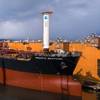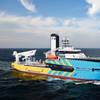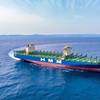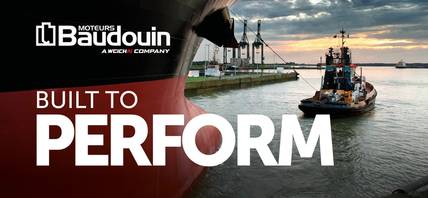Enclosed Space Death Toll Continues to Rise
'Few aspects of personal safety on ships have received more attention than the importance of following correct procedures before entering an enclosed space,' says loss-prevention executive Tony Baker. 'Unfortunately fatalities and serious injuries continue to happen with relentless regularity - all of which could have been prevented if the correct procedures had been followed.'
The North of England has repeatedly reminded its members of the dangers, including a special issue of 'Signals', three 'Signals Experiences' accident case studies and two safety posters. 'Serious efforts have also been made by many different sectors of the shipping industry to raise awareness of the dangers. Despite all these efforts, the death toll continues to mount,' says Baker.
'What is most discouraging is that enclosed space accidents often involve highly qualified and experience seafarers as well as surveyors and stevedores,' he says. 'Almost all people who die in enclosed spaces have received training and are well aware of the correct procedures. In the agony of the moment, they choose to disregard them.'
The club has reprinted in full the IMO's November 1997 guidelines 'Recommendations for Entering Enclosed Spaces Aboard Ships (Resolution A.864(20))'. This contains advice on assessment of risk, testing of atmospheres, precautions during entry and hazards relating to specific types of cargo - including oxygen-depleting cargoes such as grain, timber and coal.
'The advice within the IMO guidelines has a straightforward aim, that of protecting personnel through the safe and proper implementation of entry procedures - from the correct identification of a confined or enclosed space through to atmospheric testing, safe rescue procedures and an appreciation of the hazards to be found,' says Baker.
The UK Merchant Shipping Regulations require procedures for ensuring safe entry to, and working in, dangerous spaces to be clearly laid down by the ship operator and the master should ensure such procedures are observed on board ship. Except where necessary for entry, a ship should also ensure entrances to unattended dangerous spaces are either kept closed or otherwise secured against entry. Other flag administrations have similar regulations. The ISM Code does not contain explicit rules regarding enclosed spaces but implies they should be included within a properly constituted safety management system.
The club concludes the only way fatalities will be prevented is by strict application of the IMO guidelines each and every time a person enters an enclosed space for whatever reason, or requires another person to do so. This means properly planning and preparing the entry, which includes ensuring that the correct equipment and personnel are available.








